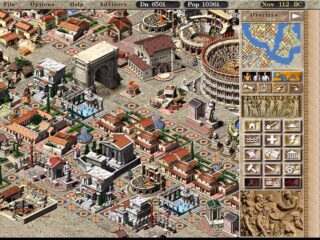The city-building genre has been a cornerstone of strategy and simulation gaming since its inception, offering players the opportunity to construct, manage, and expand virtual settlements. Rooted in deep strategic planning and resource management, these games challenge players to balance growth, economy, and the needs of their citizens while often dealing with external threats. The genre's origins can be traced back to SimCity (1989) by Will Wright and Maxis, which introduced a sandbox-style simulation where players developed sprawling urban centers, managed infrastructure, and navigated disasters.
Following SimCity, other games expanded on the concept, incorporating new mechanics and themes. Castles (1991) by Quicksilver introduced castle-building with elements of medieval warfare and political decision-making. Caesar (1992) by Impressions Games shifted the focus to the ancient Roman Empire, requiring players to construct cities while managing trade, taxation, and the well-being of their populace. The formula was refined in later titles such as Pharaoh (1999), which brought an Egyptian setting with intricate irrigation systems and monument construction.
Meanwhile, The Settlers (1993) by Blue Byte introduced a more micro-managed approach, emphasizing resource chains and production efficiency in a medieval setting. Anno 1602: Creation of a New World in 1998 took the genre to the age of exploration, challenging players to establish colonies, manage trade routes, and navigate diplomacy. Each game contributed unique elements to city-building, making it one of the most enduring and beloved genres in gaming history.














